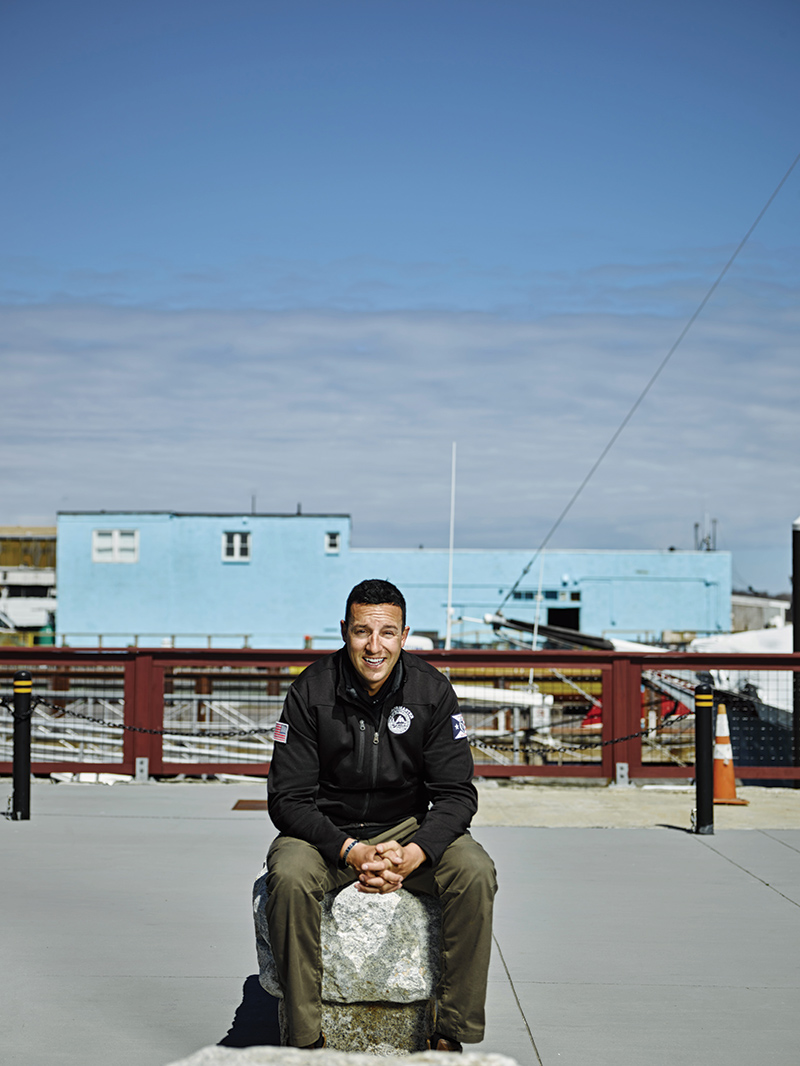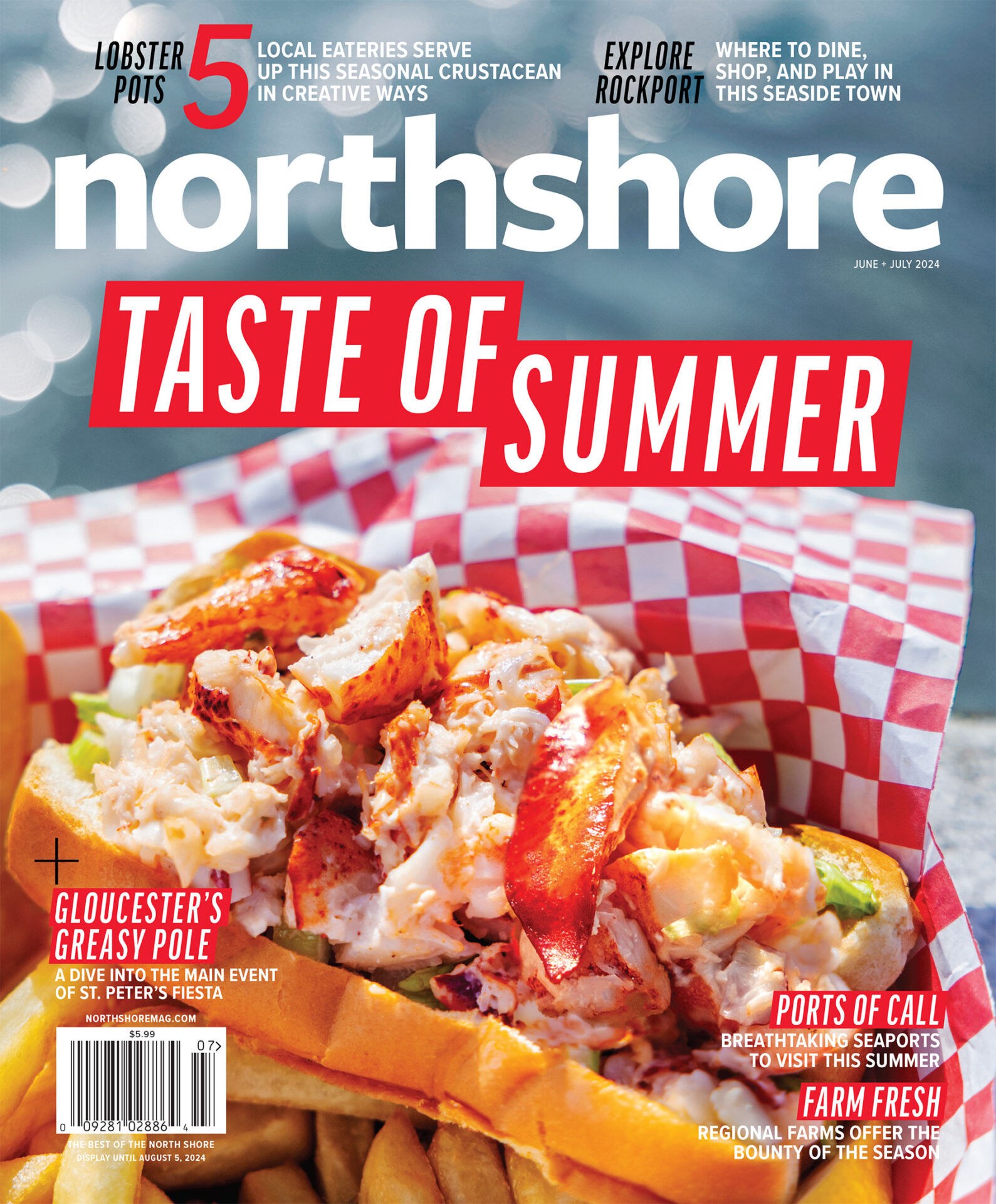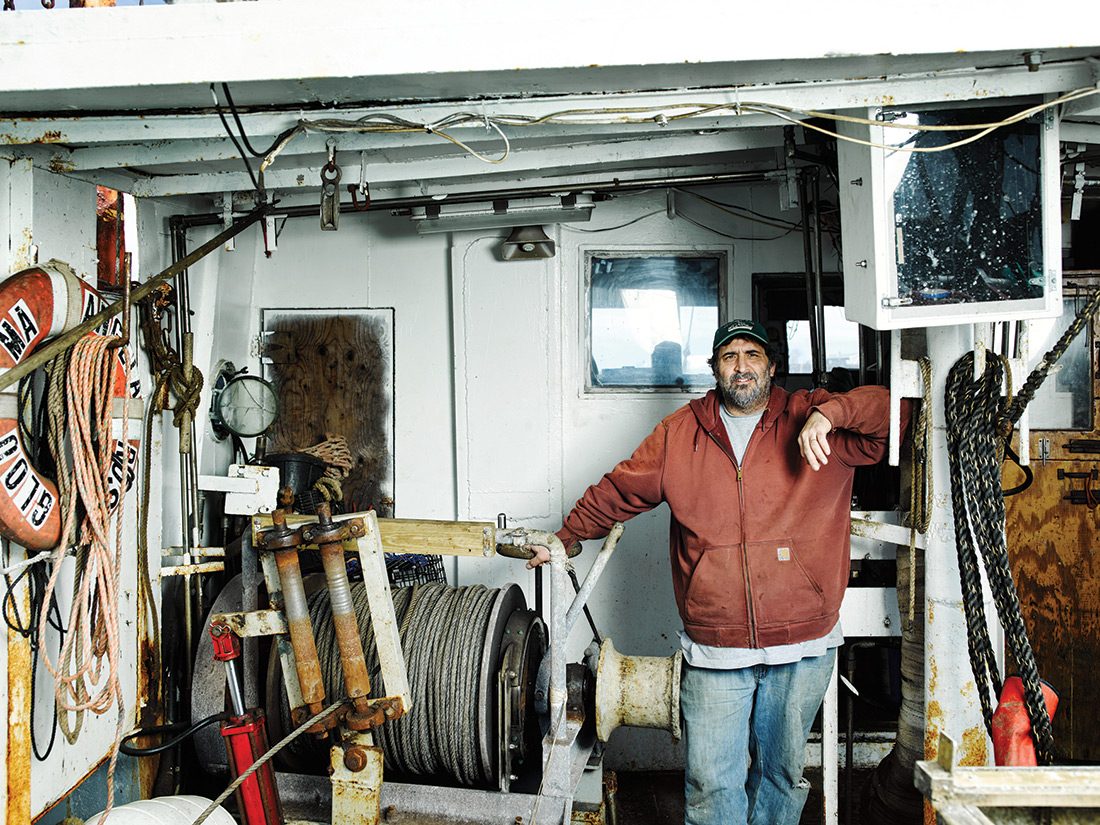Paul Vitale of Gloucester has been fishing off his boat, the Angela Rose, for 24 years. Most of the time, these days, he heads out to sea alone. Then, in the summer of 2019, a movie crew came to town.
Looking to portray the Gloucester fishing life as accurately as possible, the producers of the film CODA, about a largely deaf fishing family in Gloucester, asked Vitale if he could show them the ropes and let them use his boat. He agreed, and the experience was like none other in his history on the water. He hauled up nets of freshly caught fish for fishing scenes, taught the actors how to sort the catch like a real commercial fisherman, and occasionally loaded more than 20 people onto his small vessel.
“All of a sudden you have the actors, the interpreters, the producers, the cameramen—all these people are on the boat,” Vitale says. “It was a little overwhelming, but not in a bad way.”
Vitale and his boat weren’t the only locals to find their way onto the screen. The city harbormaster appeared in the film, as did local businessman Sam Parisi. The state fish pier, a city elementary school, and a popular harborside watering hole all served as shooting locations, and in Rockport, the town bandstand and Shalin Liu Performance Center also served as backdrops.
The result of this meticulous attention to authenticity and local detail was a movie that made a major splash at the Sundance Film Festival this year. CODA was the event’s most sought-after film, sparking a bidding war that ended when Apple acquired it for $25 million, far and away the largest payday for a film coming out of the renowned festival.

The fictional story follows Ruby Rossi, played by English actor Emilia Jones, an 18-year-old who is the only hearing person in her immediate family. She is in her senior of high school, but also works the family fishing boat with her deaf father and brother (played by Troy Kostur and Daniel Durant), often acting as a sort of business liaison between them and the hearing world. When a new choir director at school spots and encourages Ruby’s talent for singing, she must choose whether she should leave Gloucester to pursue music or stay in the family fold.
The movie’s title is an acronym for “child of deaf adults,” a term that refers to children like Ruby, who are born into deaf households, are generally fluent in sign language, and identify with both deaf and hearing cultures. The title also nods to Ruby’s interest in music and the movie’s focus on the closure of one phase of her life.
Variety magazine called the movie “tender, lively, funny, and beautifully stirring,” and Vox described it as “the kind of film you can’t help but love.” Most reviewers praised the production’s choice to use deaf actors for the roles of Ruby’s parents and brother—her mother is played by Oscar-winner Marlee Matlin—and hailed Jones’s portrayal as a breakout performance (Parisi made sure to snag her autograph after filming the short scene he appeared in).
CODA is an American adaptation of a French film called La Famille Belier. When asked to direct the picture, Cambridge resident Sian Heder immediately imagined the story set in Gloucester, which she visited every summer while growing up.
“The premise of the original film was really interesting, but there was also an opportunity to set it in a world I knew really well,” Heder explains in an interview with entertainment news site Deadline. “I was excited about those possibilities, and also to tell a very universal story… that was also very culturally specific.”
Locals who were involved with the filming say Heder’s passion for the project and her attention to capturing the real Gloucester were notable.
T.J. Ciarametaro, Gloucester’s harbormaster and a maritime industry consultant, was first approached to offer his professional perspective on a scene involving the Coast Guard. He and Heder met at downtown coffee shop the Lone Gull to go over the script, and soon he was being asked to portray a Coast Guard officer in the scene.
“The director did an outstanding job making everything as realistic as possible,” Ciarametaro says.
Popular local bar Pratty’s—which has also been a shooting location for the movie Manchester by the Sea as well as a recent Kenny Chesney video—appeared in one scene in the movie. The crew arrived at 2 a.m. and continued work until 4 p.m., says Pratty’s president Nick Pratt. Heder’s immersion in getting the film just right was obvious, he says.
“Even if it was just the short scene, you could really see the passion when they made this movie,” Pratt says. “You could tell the director cared a lot about what she was doing and what she was creating.”

